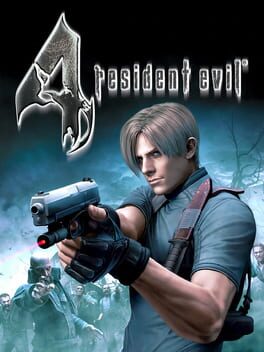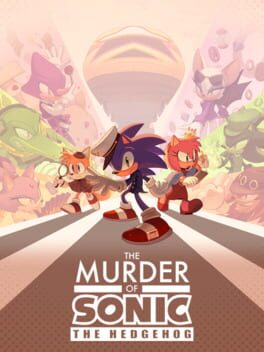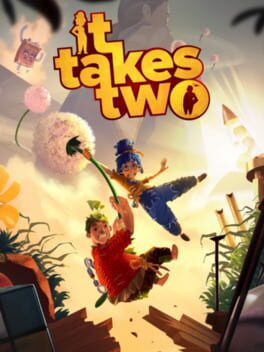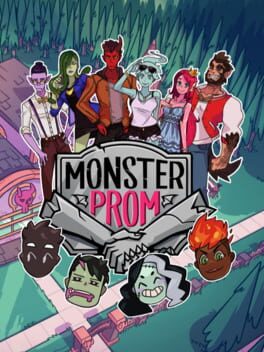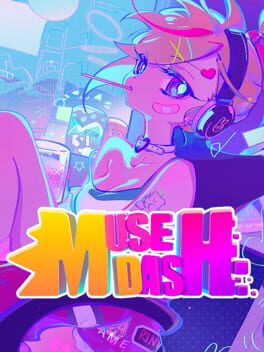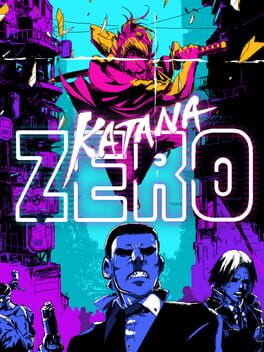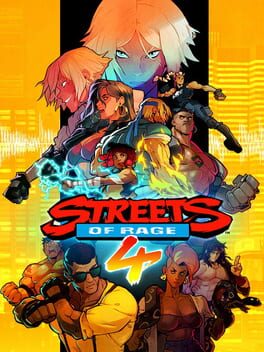2022
2005
I don't think there's enough appreciation for Shinji Mikami's script, a love letter to the American noir released long after the genre died down in Hollywood. I talk about this more in my review of the remake: https://backloggd.com/u/zang/review/815695/
2023
Disclaimer: While I do my best not to spoil any critical story details in this sketch of an analysis, I do go over in broad terms the direction the stories both the 2005 game and the 2023 remake make.
On one hand Resident Evil 4 Remake makes a good game even more replayable. It adds great voice lines for characters who only had development in found notes in the original. There are disagreements over which gameplay changes made things more interesting and which made things less, but I think it’s a matter of preference. Resident Evil 4 (2005)’s Pro Difficulty can be beaten much more easily than Remake’s. Remake has more challenges and more decisions to make, especially as a new game that hasn’t been fully mapped out by speedrunners yet. One way this happens is you’re expected to move around far more in Remake. To get a good picture of what I mean by that, I’d recommend anyone give the Chainsaw Demo a try. A fight that I had a few simple plans for in the 2005 version quickly strips away your options for staying put. There seem to be less ways to funnel your enemies into tight spaces, and even if you do manage there’s no easy ways I found to stunlock them. It’s all more complicated, for better and worse.
On the other hand, what I want to talk about the most is how the remake almost completely does away with what made the original most memorable for me: Shinji Mikami’s project was essentially the most ambitious noir script I’ve ever seen. The noir is a genre that typically bores me to tears. From what I can tell, the movies and such in this genre want you to empathize with the American man’s fear of losing control, of becoming dominated by women, of being unable to rescue innocents from grand conspiracies, of watching their old friends and the elderly become corrupted, of getting driven out by foreigners, of being used for evil. Yet most of the time I’d fail to really feel the stakes for a petty man caught in the middle of someone else’s tragedy.
Resident Evil 4 breathed new life into (or reanimated, if you prefer) a genre that usually disinterests me by throwing in everything but the kitchen sink. The horror, the action, and the absurdities are more in-your-face, and so I really got invested in what Leon was going through, constantly being demeaned for trying to be “an American hero” and surrounded by a bunch of supposedly straight men and women never straight-talking. He was like a Philip Marlowe or Mike Hammer, but I could actually understand his pent-up rage (and he is very funny). Probably the most gamer thing I’ll ever write is: I wish the remake kept the misogyny (among the other noir genre staples). “She’s like a part of me I can’t let go.” https://www.youtube.com/watch?v=pC3w5hXzekQ
Resident Evil 4 Remake’s story is instead - in a broad sense - about people trying to do the right thing against, well, evil people and creatures, which I would argue was never anyone’s explicit intention in the original. In fact, the first line Leon says after killing his first villager in the original is the realization “He’s not a zombie.” It’s a scene where many have remarked that the villager might have been entirely in the right to feel threatened by Leon’s presence, invading his home with a gun drawn speaking a foreign language. The lines between good and evil are a lot more blurred. As I mentioned before, the casual misogyny is completely done away with, but Ada is also less of a deus ex machina or femme fatale for Leon, which makes me curious about how the Separate Ways DLC will go.
It makes sense that Capcom wouldn’t want their shiny new game to be a noir with stiff movement and cynical characters since I guess that genre has been pretty much dead for a while now, but the original RE4 will forever be iconic for its epic interpretation of the American hero literally almost becoming the parasite he’s always feared about others. I also wish Krauser would still refer to Leon as his comrade in the remake.
On one hand Resident Evil 4 Remake makes a good game even more replayable. It adds great voice lines for characters who only had development in found notes in the original. There are disagreements over which gameplay changes made things more interesting and which made things less, but I think it’s a matter of preference. Resident Evil 4 (2005)’s Pro Difficulty can be beaten much more easily than Remake’s. Remake has more challenges and more decisions to make, especially as a new game that hasn’t been fully mapped out by speedrunners yet. One way this happens is you’re expected to move around far more in Remake. To get a good picture of what I mean by that, I’d recommend anyone give the Chainsaw Demo a try. A fight that I had a few simple plans for in the 2005 version quickly strips away your options for staying put. There seem to be less ways to funnel your enemies into tight spaces, and even if you do manage there’s no easy ways I found to stunlock them. It’s all more complicated, for better and worse.
On the other hand, what I want to talk about the most is how the remake almost completely does away with what made the original most memorable for me: Shinji Mikami’s project was essentially the most ambitious noir script I’ve ever seen. The noir is a genre that typically bores me to tears. From what I can tell, the movies and such in this genre want you to empathize with the American man’s fear of losing control, of becoming dominated by women, of being unable to rescue innocents from grand conspiracies, of watching their old friends and the elderly become corrupted, of getting driven out by foreigners, of being used for evil. Yet most of the time I’d fail to really feel the stakes for a petty man caught in the middle of someone else’s tragedy.
Resident Evil 4 breathed new life into (or reanimated, if you prefer) a genre that usually disinterests me by throwing in everything but the kitchen sink. The horror, the action, and the absurdities are more in-your-face, and so I really got invested in what Leon was going through, constantly being demeaned for trying to be “an American hero” and surrounded by a bunch of supposedly straight men and women never straight-talking. He was like a Philip Marlowe or Mike Hammer, but I could actually understand his pent-up rage (and he is very funny). Probably the most gamer thing I’ll ever write is: I wish the remake kept the misogyny (among the other noir genre staples). “She’s like a part of me I can’t let go.” https://www.youtube.com/watch?v=pC3w5hXzekQ
Resident Evil 4 Remake’s story is instead - in a broad sense - about people trying to do the right thing against, well, evil people and creatures, which I would argue was never anyone’s explicit intention in the original. In fact, the first line Leon says after killing his first villager in the original is the realization “He’s not a zombie.” It’s a scene where many have remarked that the villager might have been entirely in the right to feel threatened by Leon’s presence, invading his home with a gun drawn speaking a foreign language. The lines between good and evil are a lot more blurred. As I mentioned before, the casual misogyny is completely done away with, but Ada is also less of a deus ex machina or femme fatale for Leon, which makes me curious about how the Separate Ways DLC will go.
It makes sense that Capcom wouldn’t want their shiny new game to be a noir with stiff movement and cynical characters since I guess that genre has been pretty much dead for a while now, but the original RE4 will forever be iconic for its epic interpretation of the American hero literally almost becoming the parasite he’s always feared about others. I also wish Krauser would still refer to Leon as his comrade in the remake.
This review contains spoilers
This is a difficult game to recommend, because it intentionally eats itself alive in its final hours. Fans of the 2013 game are treated with some juicy New Content that expands a bit on the original's magic before Ultra Deluxe reveals itself to be an elaborate prank.
Once you get the Bucket and exit the Expo, it slowly begins to dawn on you that the game has nothing interesting left to say, and almost everything else you do afterwards is recycled content. Some of this content is still funny, but none of it carries any of the interesting self-reflection the game is known for. It feels massively anticlimactic, which is largely intentional, but it can't help but feel like the game is wasting your time by literally becoming the cash grab it mocks.
Once you get the Bucket and exit the Expo, it slowly begins to dawn on you that the game has nothing interesting left to say, and almost everything else you do afterwards is recycled content. Some of this content is still funny, but none of it carries any of the interesting self-reflection the game is known for. It feels massively anticlimactic, which is largely intentional, but it can't help but feel like the game is wasting your time by literally becoming the cash grab it mocks.
2015
Undertale's most interesting story arc is the one it reflects back at the player, specifically the player's "determination" to certain fantasies. Its design for enemy encounters is also remarkable. The issues I have with this game are twofold: the game's actual narrative progression is mediocre, and the celebration of the player's commitment to the main route feels hollow.
The game does little or nothing to challenge you for sticking to pacifism. To some extent, this makes sense. The characters in the world are fully intended to be non-threats, as opposed to you. However, for a game about peaceful conflict resolution and staying determined, there is noticeably little conflict that's truly inconvenient. And sure, you likely want to see the good ending and what funny things the characters have to say next, but the game doesn't really interrogate why you'd prefer this.
Very few of the conflicts you have to resolve act as though they have stakes, and the ones that do (e.g. Alphys') are underdeveloped. Undertale repeatedly pulls back from getting too serious, occasionally toying with more difficult ideas without ever committing to anything memorable. The resulting dissonance feels unsatisfactory. Even if you pursue an alternate route, the game doesn't have much to say about the concept of being determined it keeps bringing up. It winds up being shallow moralizing.
It feels like the game is taunting you with its overwhelming optimism at its end; it literally juxtaposes its happy ending with the idea that a happy ending is impossible. I can't be the only one who thought that I really didn't do anything to earn the friendship of the majority of the cast; that there really is no guarantee of assimilation/integration for them; that the most troubling events in the Underground's history were skimmed over. It all came off to me as horribly insincere.
In the end, this is a damn ambitious one-man project from 2015 that has inarguably influenced many. I just think there's more to the "soul" than Undertale is willing to confront. There is so much Undertale does that's cool, it'd be a shame if these ideas weren't expanded upon somehow.
The game does little or nothing to challenge you for sticking to pacifism. To some extent, this makes sense. The characters in the world are fully intended to be non-threats, as opposed to you. However, for a game about peaceful conflict resolution and staying determined, there is noticeably little conflict that's truly inconvenient. And sure, you likely want to see the good ending and what funny things the characters have to say next, but the game doesn't really interrogate why you'd prefer this.
Very few of the conflicts you have to resolve act as though they have stakes, and the ones that do (e.g. Alphys') are underdeveloped. Undertale repeatedly pulls back from getting too serious, occasionally toying with more difficult ideas without ever committing to anything memorable. The resulting dissonance feels unsatisfactory. Even if you pursue an alternate route, the game doesn't have much to say about the concept of being determined it keeps bringing up. It winds up being shallow moralizing.
It feels like the game is taunting you with its overwhelming optimism at its end; it literally juxtaposes its happy ending with the idea that a happy ending is impossible. I can't be the only one who thought that I really didn't do anything to earn the friendship of the majority of the cast; that there really is no guarantee of assimilation/integration for them; that the most troubling events in the Underground's history were skimmed over. It all came off to me as horribly insincere.
In the end, this is a damn ambitious one-man project from 2015 that has inarguably influenced many. I just think there's more to the "soul" than Undertale is willing to confront. There is so much Undertale does that's cool, it'd be a shame if these ideas weren't expanded upon somehow.
2021
I don't believe It Takes Two is a game worth picking up if you're not looking for something casual to play with a friend. What I mean by this is the game is not memorable enough in either narrative or gameplay to warrant feeling left out by its co-op exclusivity.
It Takes Two provides a mixed bag of different pieces of collective gameplay nostalgia: most notably from 3D platforming, co-op puzzles, and arcade shooters. It pretty much never develops the ideas it throws in the mix beyond their rudimentary designs, relying instead on changing environments to keep attention going. To its credit, the looks of the worlds are entertaining cinematically, with side events to interact with that generally add to their charm. Overall, it has the feeling of an uneven licensed kid's game.
The best co-op games, in my opinion, have everyone playing doing an interesting role simultaneously and reacting to one another's inevitable shortcomings. It Takes Two is mostly horribly unwilling to provide these kinds of challenges. I can only think of a single part of the game - a boss fight around its halfway mark - that carries a remnant of the urgency a co-op game usually has, and it doesn't even use any special abilities. This makes a lot of the gameplay feel clunky and redundant, as most of it feels like you're just waiting for the other person to do something simple. If this is a metaphor for turn-taking, it's lazily implemented.
This is not to say that all the rest of the gameplay is bad, just that it frequently gets monotonous. I wish more of the gameplay was as absurd as the set pieces. For a game that aims to switch it up every chapter, it isn't consistently fresh. This doesn't pair well when it's so noncommittal to developing any mechanics, even the ones it recycles. It relies too much on the occasional quick novelty, which doesn't work for its runtime. It's low stakes in every respect.
The narrative of It Takes Two is uncomfortably bad, even disregarding its worst implications that border on parody. Plot developments are so abrupt, despite the game's length, it feels as though they were a dejected afterthought. Despite being a game about rekindling love, there is next-to-no romantic tension between the leads; the dialogue is almost entirely the two either bickering over nonsense or marveling at the scenery. When they eventually do communicate over their problems, it boils down to awkwardly exchanging "that's too bad" remarks.
This makes the theoretical cooperation you're building in the gameplay completely detached from what the protagonists are going through. It all culminates in a final chapter that should feel emotionally powerful, but is instead baffling. I don't understand why they bothered making this a game about divorce with such a shallow story; it seems like a waste of an interesting ludonarrative.
It Takes Two provides a mixed bag of different pieces of collective gameplay nostalgia: most notably from 3D platforming, co-op puzzles, and arcade shooters. It pretty much never develops the ideas it throws in the mix beyond their rudimentary designs, relying instead on changing environments to keep attention going. To its credit, the looks of the worlds are entertaining cinematically, with side events to interact with that generally add to their charm. Overall, it has the feeling of an uneven licensed kid's game.
The best co-op games, in my opinion, have everyone playing doing an interesting role simultaneously and reacting to one another's inevitable shortcomings. It Takes Two is mostly horribly unwilling to provide these kinds of challenges. I can only think of a single part of the game - a boss fight around its halfway mark - that carries a remnant of the urgency a co-op game usually has, and it doesn't even use any special abilities. This makes a lot of the gameplay feel clunky and redundant, as most of it feels like you're just waiting for the other person to do something simple. If this is a metaphor for turn-taking, it's lazily implemented.
This is not to say that all the rest of the gameplay is bad, just that it frequently gets monotonous. I wish more of the gameplay was as absurd as the set pieces. For a game that aims to switch it up every chapter, it isn't consistently fresh. This doesn't pair well when it's so noncommittal to developing any mechanics, even the ones it recycles. It relies too much on the occasional quick novelty, which doesn't work for its runtime. It's low stakes in every respect.
The narrative of It Takes Two is uncomfortably bad, even disregarding its worst implications that border on parody. Plot developments are so abrupt, despite the game's length, it feels as though they were a dejected afterthought. Despite being a game about rekindling love, there is next-to-no romantic tension between the leads; the dialogue is almost entirely the two either bickering over nonsense or marveling at the scenery. When they eventually do communicate over their problems, it boils down to awkwardly exchanging "that's too bad" remarks.
This makes the theoretical cooperation you're building in the gameplay completely detached from what the protagonists are going through. It all culminates in a final chapter that should feel emotionally powerful, but is instead baffling. I don't understand why they bothered making this a game about divorce with such a shallow story; it seems like a waste of an interesting ludonarrative.
2018
It's made for cracking edgy jokes with people at get-togethers, and there are far easier ways to achieve that if you're not picky. You can also play it alone solely for finding all the different outcomes the game has written (there are over a thousand!), which could be entertaining.
As a game, I feel like it's just not that attention-keeping. There are no character developments or complications to be invested in. No incentive to compete with the other players other than just wanting to screw with them; and even then, there's not even an interesting domino effect for the absurdly simple prompts you have as competition. I feel like there's pretty much no thought to seriously put into the scenarios. Everything feels like its detached from any kind of progression in gameplay or narrative. I don't feel particularly accomplished or satisfied when finishing a run.
And the edginess really wore me down. For a game that relies so heavily on you wanting to pine for the characters, they feel so unlikeable (but of course my silly heart pines for them anyway). It rots with so much tongue-in-cheek cynicism without being exciting enough to get me to be a part of that.
I have no doubt many friend groups have enjoyed and will enjoy spending game nights on this. I'm clearly not included in this game's target audience, however much I wish I were.
As a game, I feel like it's just not that attention-keeping. There are no character developments or complications to be invested in. No incentive to compete with the other players other than just wanting to screw with them; and even then, there's not even an interesting domino effect for the absurdly simple prompts you have as competition. I feel like there's pretty much no thought to seriously put into the scenarios. Everything feels like its detached from any kind of progression in gameplay or narrative. I don't feel particularly accomplished or satisfied when finishing a run.
And the edginess really wore me down. For a game that relies so heavily on you wanting to pine for the characters, they feel so unlikeable (but of course my silly heart pines for them anyway). It rots with so much tongue-in-cheek cynicism without being exciting enough to get me to be a part of that.
I have no doubt many friend groups have enjoyed and will enjoy spending game nights on this. I'm clearly not included in this game's target audience, however much I wish I were.
2018
2019
Katana Zero's story is the first I've seen begin to treat psychopathy as the mental disability it is, not just something to gawk at. It does do this through an ultraviolent action game with familiar story beats, but it puts unprecedented emphasis on the very real impairments and vulnerabilities its protagonist faces. This is the first act of a larger narrative (of which Justin Stander has confirmed at least two more acts for), so it's impossible to say if it'll buckle under the weight of such a delicate issue as things get more complicated. All I can say is it feels like it yearns for the same desire for genuine rehabilitation I do.
As a whole, this is a very lovingly crafted game.
As a whole, this is a very lovingly crafted game.
2020
It's oozing with style from nearly every corner and is very inspired in its goals to get the player to think critically on both investigating crimes and coming up with their verdicts. The game is at its best when it commits to this, and there's clear attention to complications in morality and truth in the narrative. This sets it apart from other recent games that similarly test your ability to unravel truth from incomplete facts (i.e. Return of the Obra Dinn, Heaven's Vault).
However, it's got a slog of a rising action. Part of this is due to an overreliance on overly simple collectathon-esque gameplay. It's also an open world game that never gives you very fun upgrades. There's a lot of redundancy as you're basically supposed to travel back and forth the island over and over with diminishing returns that can make things far less exciting. At the end of the day, I can see a good argument for why it's just not worth it to go through all of this.
Would love to see where this goes next (both the genre and the developer).
However, it's got a slog of a rising action. Part of this is due to an overreliance on overly simple collectathon-esque gameplay. It's also an open world game that never gives you very fun upgrades. There's a lot of redundancy as you're basically supposed to travel back and forth the island over and over with diminishing returns that can make things far less exciting. At the end of the day, I can see a good argument for why it's just not worth it to go through all of this.
Would love to see where this goes next (both the genre and the developer).
2020
2020
2018

